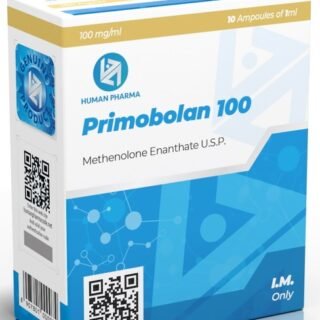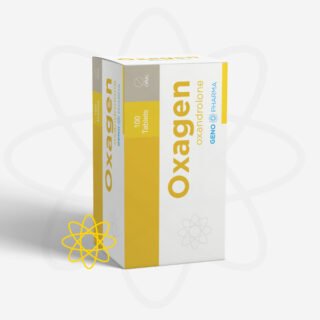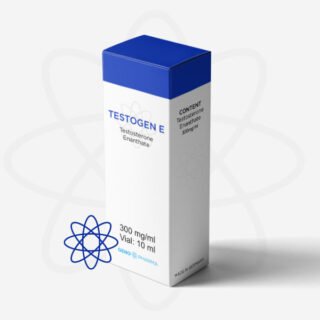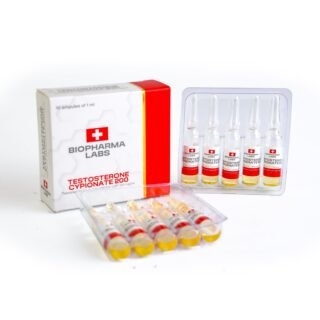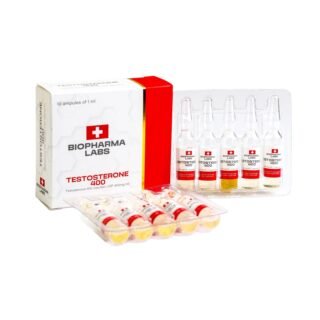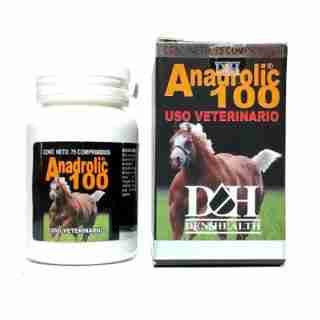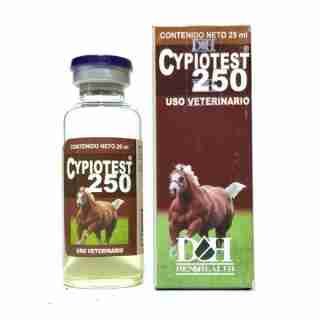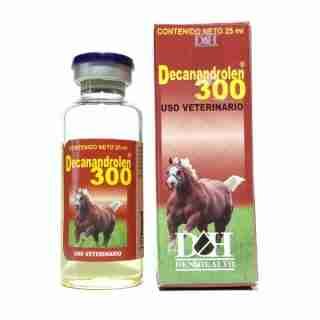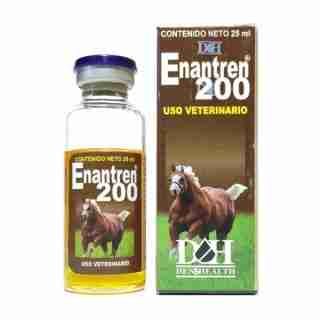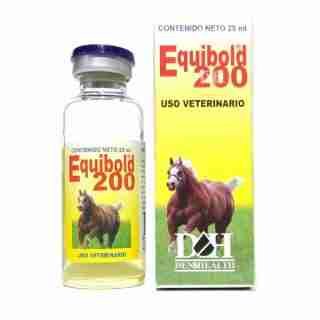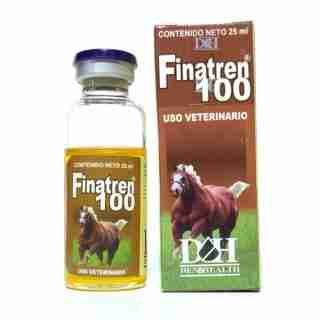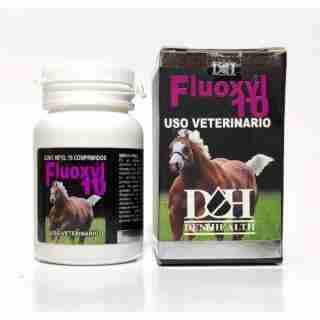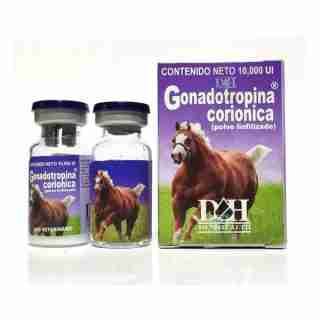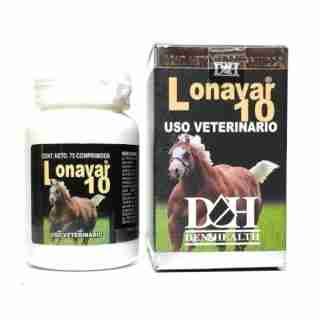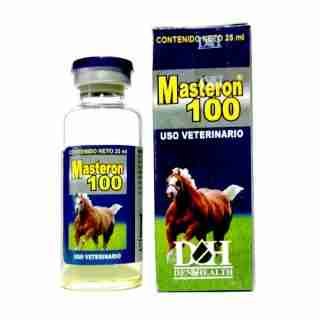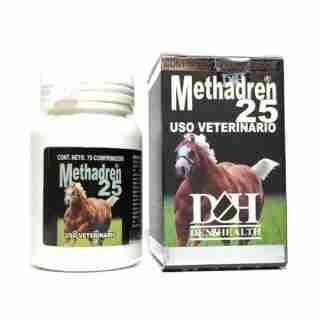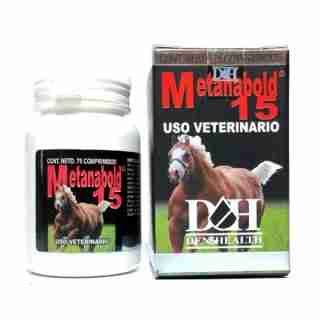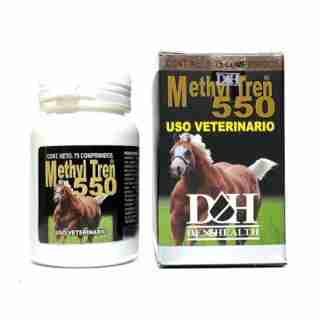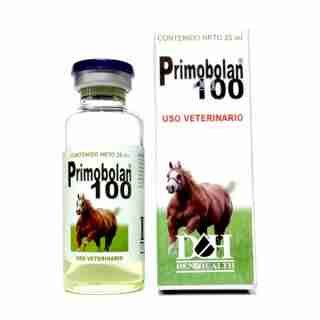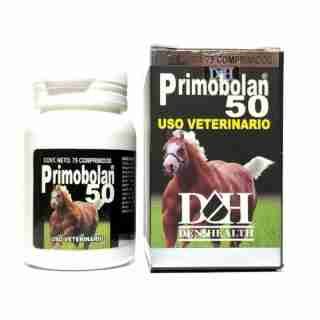Category
- Best Peptides for muscle growth
- Geno Pharma Domestic Warehouse 2 (Canada&USA)
- GPH(Domestic Shipping US) Warehouse 1
- Human Pharma Premium
- Phar Labs Premium-Select
- Steroids on Sale USA, Real Steroids Online
- New arrivals in USA
- Most popular steroids in USA
- Antiestrogens / Gonadotropins
- Bangkok Steroid USA
- Biopharma Steroid USA
- British Dragon
- Anabolic Steroids for Horses
- Fat-burners
- Gen Pharma USA
- Medical Pharma Steroid USA
- Medical Tech Steroid USA
- Novocrine Steroids
- HGH USA
- Omega Labs Steroid USA
- Rotterdam Steroids USA
- SARMs USA
- Sciroxx
- Sydgroup Steroid USA
- Big vetenary Steroid USA
- Watson Steroids
- XT Labs Steroids
Most Popular steroids USA
-
 Primobolan for sale 100mg 10 ml Human Pharma in USA
$115.00
Primobolan for sale 100mg 10 ml Human Pharma in USA
$115.00 -
 NPP Steroid 100mg 10 ml Premium Domestic USA
NPP Steroid 100mg 10 ml Premium Domestic USA
$99.00Original price was: $99.00.$80.00Current price is: $80.00. -
 Anavar for Sale in USA – 10mg 80 Tabs GPH-Premium
Anavar for Sale in USA – 10mg 80 Tabs GPH-Premium
$110.00Original price was: $110.00.$80.00Current price is: $80.00. -
 Buy Anavar 10mg – Purchase Geno Pharma
$99.00
Buy Anavar 10mg – Purchase Geno Pharma
$99.00 -
 Testosterone Cypionate Buy 300mg 10ml Geno Pharma
$99.00
Testosterone Cypionate Buy 300mg 10ml Geno Pharma
$99.00 -
 Buy Testosterone E 300mg 10 ml Geno Pharma Domestic USA/CA
$99.00
Buy Testosterone E 300mg 10 ml Geno Pharma Domestic USA/CA
$99.00 -
 Testosterone Cypionate 200 Biopharma 10 amp
Testosterone Cypionate 200 Biopharma 10 amp
$99.00Original price was: $99.00.$72.00Current price is: $72.00. -
 Testosterone 400 Biopharma 10 Ampoules
Testosterone 400 Biopharma 10 Ampoules
$99.00Original price was: $99.00.$75.00Current price is: $75.00. -
 Eq 300 steroid Rotterdam 10ml
Eq 300 steroid Rotterdam 10ml
$79.00Original price was: $79.00.$69.00Current price is: $69.00. -
 Steroid Deca Geno Pharma 300mg 10ml
Steroid Deca Geno Pharma 300mg 10ml
$110.00Original price was: $110.00.$99.00Current price is: $99.00. -
 Boldenone Cypionate 200 mg / 10 mL Geno Pharma
Boldenone Cypionate 200 mg / 10 mL Geno Pharma
$90.00Original price was: $90.00.$85.00Current price is: $85.00. -
 Somatrox XT Labs 150 IU x 10 vials (15 ui each)
Somatrox XT Labs 150 IU x 10 vials (15 ui each)
$450.00Original price was: $450.00.$350.00Current price is: $350.00.

Category: Anabolic Steroids for Horses
Anabolic Steroids for Horses: Benefits, Risks
Anabolic steroids are synthetic substances that mimic testosterone effects in horses. They are often used to enhance muscle growth and improve recovery from certain health conditions. Veterinarians may prescribe anabolic steroids for specific therapeutic purposes. However, their use raises important health, ethical, and regulatory considerations within equine practice. Understanding these factors is crucial for responsible administration.
Understanding Anabolic Steroids in Equine Practice
Anabolic steroids are increasingly recognized in equine medical practice for their potential benefits and related concerns. A comprehensive understanding of these substances is crucial for veterinarians and horse owners alike.
Definition and Mechanisms
Anabolic steroids are synthetic derivatives of testosterone, designed to enhance anabolic processes in the body. These compounds facilitate muscle growth and promote recovery from physical stress or injury.
How Anabolic Steroids Work
The primary mechanism through which anabolic steroids operate involves binding to androgen receptors in muscle tissues. This interaction triggers a cascade of biological processes, including:
- Increased protein synthesis, which aids in muscle repair and growth.
- Enhanced appetite, helping horses regain strength after illness or surgery.
- Accelerated recovery times, allowing horses to return to full functionality more swiftly.
Role in Muscle Mass Growth
The administration of anabolic steroids can significantly enhance muscle mass in horses, especially in cases of atrophy caused by chronic illness or inactivity. This benefit is particularly valuable in veterinary settings where muscle wasting is a concern.
Therapeutic Use in Horses
Veterinarians may prescribe anabolic steroids in specific clinical situations aimed at improving a horse’s health status. Their therapeutic potential is acknowledged in various conditions, highlighting their role in equine medicine.
Common Conditions Treated
Anabolic steroids may be used to address several health issues, including:
- Cachexia, characterized by significant weight loss and muscle loss.
- Recovery from surgeries, aiding in reducing muscle loss during rehabilitation.
- Severe anorexia resulting from chronic conditions, promoting appetite and weight gain.
Equipoise and Its Effects
Equipoise, a specific anabolic steroid, is often utilized in equine practice. It is noted for its favorable properties in muscle growth without the severe side effects associated with some other anabolic agents. Its unique formulation allows for better weight gain and muscle recovery in horses needing therapeutic intervention.
Clinical Applications and Guidelines
The use of anabolic steroids in equine medicine necessitates a thorough understanding of clinical applications and guidelines for their proper administration. Veterinary professionals must evaluate specific health conditions to determine the most appropriate therapeutic strategies.
Veterinary Assessment and Indications
When to Consider Anabolic Steroids
Anabolic steroids may be indicated in various situations involving muscle loss and compromised recovery. Key scenarios warranting their consideration include:
- Post-surgical recovery, where tissue healing and muscle maintenance are essential.
- Management of cachexia, which results in severe weight loss and muscle wasting due to chronic illness.
- Support for horses experiencing anorexia or significant weight loss due to prolonged inactivity or stress.
Equipoise for Horses: Recommended Uses
Equipoise, a specific anabolic steroid, is utilized primarily for its muscle-building properties. Veterinarians frequently recommend Equipoise in the following contexts:
- Enhancing weight gain during recovery periods, particularly in horses that have undergone major surgeries.
- Supporting muscle growth in horses suffering from chronic conditions that compromise their nutrition and stamina.
Administration and Dosage
Safe Practices for Vets
Proper administration of anabolic steroids is crucial for maximizing benefits while minimizing risks. Veterinarians should adhere to best practices, which include:
- Conducting a comprehensive health assessment to confirm the appropriateness of steroid use.
- Implementing tailored dosages based on the specific needs of the horse, keeping in mind factors like age, weight, and overall health.
- Documenting all treatments to ensure compliance with regulations and maintain transparency with horse owners.
Monitoring Horse Health
Ongoing monitoring is essential once anabolic steroids are administered. This includes:
- Regular health check-ups to assess the horse’s response to treatment, including weight and muscle condition.
- Watchfulness for potential side effects, such as behavioral changes or signs of hormonal imbalance.
- Adjusting treatment plans as necessary based on the horse’s overall health and progress.
The use of anabolic steroids for equine purposes carries significant potential side effects and risks. Understanding these implications is critical for safe and effective veterinary practice.
Potential Side Effects and Risks
Health Implications for Horses
While anabolic steroids can provide therapeutic benefits, they may also lead to various health complications. Awareness of these risks is essential for both veterinarians and horse owners.
Short-term and Long-term Effects
Short-term use of anabolic steroids may result in increased muscle mass and appetite. However, alongside these advantages, potential adverse effects can emerge:
- Fluid retention, which can cause swelling
- Temporary changes in hormone levels
- Increased risk of infections due to immune system modulation
Long-term administration is associated with more severe issues, including:
- Liver damage, particularly with excessive dosages
- Hormonal imbalances, leading to reproductive issues
- Increased aggression or behavioral changes that may affect the horse’s interaction with handlers and other animals
Behavioral Changes
Behavioral alterations are notable side effects of anabolic steroid use. Horses may exhibit:
- Increased aggression, which can pose safety risks to handlers
- Stallion-like behaviors in geldings
- Restlessness or difficulty relaxing, affecting their overall well-being
These behavioral changes complicate the relationship between horses and their caretakers, necessitating careful monitoring following administration.
Showing 1–16 of 27 results
Anadrolic 100mg/pill 75 pills – D&H Denkall USA Steroids
$77.00Add to cartAnadrol (commonly called by athletes “A50” or “A-bombs”) was initially developed as a compound to help people with anemia, and has since been used very successfully to aid people who are suffering from many other diseases where weight loss is a concern.
Thus, it is clearly an effective agent for promoting weight gain, increasing appetite, gaining strength, and increasing Red Blood Cell count. And, as with most Anabolic/Androgenic Steroids (AAS), it has its downsides as well. Anadrol 50 will inhibit your body’s natural production of hormones (testosterone, etc ), will negatively affect your blood lipid profile, can cause water retention, is notorious for causing headaches, and is also highly liver toxic (in fact, it has the worst reputation for hepatoxicity out of all steroids). Paradoxically, although one the benefits touted by its original manufacturer (Syntex) is that it can be used to stimulate weight gain through increasing appetite, taking too much may actually inhibit your appetite!
Share this page:
- Click to share on X (Opens in new window) X
- Click to share on Facebook (Opens in new window) Facebook
- Click to email a link to a friend (Opens in new window) Email
- Click to share on LinkedIn (Opens in new window) LinkedIn
- Click to share on Reddit (Opens in new window) Reddit
- Click to share on Pinterest (Opens in new window) Pinterest
- Click to share on Telegram (Opens in new window) Telegram
- Click to share on WhatsApp (Opens in new window) WhatsApp
- Click to share on Tumblr (Opens in new window) Tumblr
Cypiotest 250 25 ml – D&H Denkall Steroids Pro in the USA
$77.00Add to cartTestosterone is a hormone produced by all human beings and is the primary male sex hormone. Through our discussion, well take a look at Testosterone Cypionate, and examine the pros and cons of its use to improve performance in athletics and bodybuilding. Before we dive in, lets clear up a common misconception. Testosterone Cypionate is no more or less powerful or effective than its counterpart Testosterone Enanthate. The two compounds are virtually identical in every way.
Share this page:
- Click to share on X (Opens in new window) X
- Click to share on Facebook (Opens in new window) Facebook
- Click to email a link to a friend (Opens in new window) Email
- Click to share on LinkedIn (Opens in new window) LinkedIn
- Click to share on Reddit (Opens in new window) Reddit
- Click to share on Pinterest (Opens in new window) Pinterest
- Click to share on Telegram (Opens in new window) Telegram
- Click to share on WhatsApp (Opens in new window) WhatsApp
- Click to share on Tumblr (Opens in new window) Tumblr
D-Bol 50mg/ml 25 ml – D&H Denkall Steroids Online in USA
$77.00Add to cartInjectable Dbol is something many have a great interest in for a couple of reasons; its hepatotoxicity is less than the oral tablet and it’s faster acting, and that’s saying something when the tablet is already rapid. While many desire it, injectable Dbol can be hard to find; at least in recent years.
Through the 1990’s and early 2000’s, this product was wildly available out of Mexico, but due to a problem that we’ll see later on it would lose a lot of its popularity. Nevertheless, you can still find injectable Dbol if you want it, there are plenty of underground labs that still make it, but there are something’s you need to understand if you choose to go this route; important things you need to be aware of.
Share this page:
- Click to share on X (Opens in new window) X
- Click to share on Facebook (Opens in new window) Facebook
- Click to email a link to a friend (Opens in new window) Email
- Click to share on LinkedIn (Opens in new window) LinkedIn
- Click to share on Reddit (Opens in new window) Reddit
- Click to share on Pinterest (Opens in new window) Pinterest
- Click to share on Telegram (Opens in new window) Telegram
- Click to share on WhatsApp (Opens in new window) WhatsApp
- Click to share on Tumblr (Opens in new window) Tumblr
Decanandrolen 300mg/ml 25 ml D&H Denkall Anabolics Sales in USA
$77.00Add to cartDeca Durabolin is an extremely popular anabolic steroid comprised of the steroidal hormone Nandrolone and is attached to the large Decanoate ester. The Nandrolone hormone first appeared in 1960 and developed for commercial use in 1962 by Organon under the trade name Deca Durabolin. Since that time numerous Nandrolone Decanoate versions have hit the market, but Deca Durabolin remains the most recognized.
This was not the first Nandrolone compound ever created, that would belong to Organon’s Durabolin, which is specifically Nandrolone Phenylpropionate. The Phenylpropionate version is much faster acting with a less active duration, and while Phenylpropionate forms are popular, Deca Durabolin has largely dominated the Nandrolone marketplace.
Share this page:
- Click to share on X (Opens in new window) X
- Click to share on Facebook (Opens in new window) Facebook
- Click to email a link to a friend (Opens in new window) Email
- Click to share on LinkedIn (Opens in new window) LinkedIn
- Click to share on Reddit (Opens in new window) Reddit
- Click to share on Pinterest (Opens in new window) Pinterest
- Click to share on Telegram (Opens in new window) Telegram
- Click to share on WhatsApp (Opens in new window) WhatsApp
- Click to share on Tumblr (Opens in new window) Tumblr
Enantren 200/ml 25 ml – D&H Denkall Buy Anabolics in USA
$87.00Add to cartTrenbolone Enanthate (Trenbolone Base + Enanthate Ester).
Trenbolone Enanthate is an extremely powerful anabolic steroid and is virtually interchangeable with Parabolan (Trenbolone Hexahydrobenzylcarbonate). All Trenbolone compounds carry the same, identical Trenbolone hormone. The only difference in the compounds is the ester attached, which helps to control the hormone’s releasing activity. There will not be much difference in Trenbolone Enanthate and Parabolan in this regard.
Share this page:
- Click to share on X (Opens in new window) X
- Click to share on Facebook (Opens in new window) Facebook
- Click to email a link to a friend (Opens in new window) Email
- Click to share on LinkedIn (Opens in new window) LinkedIn
- Click to share on Reddit (Opens in new window) Reddit
- Click to share on Pinterest (Opens in new window) Pinterest
- Click to share on Telegram (Opens in new window) Telegram
- Click to share on WhatsApp (Opens in new window) WhatsApp
- Click to share on Tumblr (Opens in new window) Tumblr
Equibold 200mg/ml 25 ml – D&H Denkall
$77.00Add to cartBoldenone Undecylenate is a testosterone derived anabolic androgenic steroid that is best known by the trade name Equipoise given to it by Squibb in the 1970’s. While Equipoise is officially classified as a veterinarian grade anabolic steroid, the first batches of Boldenone were introduced on the human grade pharmaceutical market by Ciba in the early 1950’s under the brand name Parenabol.
Human grade Boldenone would see some success in human medicine through the 1960’s and 70’s but would ultimately be discontinued by the end of the decade. Since that time, the steroid has only been available through veterinarian medicine and underground labs with the Equipoise name dominating the market. Fort Dodge Animal Health now owns the Equipoise name.
Share this page:
- Click to share on X (Opens in new window) X
- Click to share on Facebook (Opens in new window) Facebook
- Click to email a link to a friend (Opens in new window) Email
- Click to share on LinkedIn (Opens in new window) LinkedIn
- Click to share on Reddit (Opens in new window) Reddit
- Click to share on Pinterest (Opens in new window) Pinterest
- Click to share on Telegram (Opens in new window) Telegram
- Click to share on WhatsApp (Opens in new window) WhatsApp
- Click to share on Tumblr (Opens in new window) Tumblr
Finatren 100mg/ml 25 ml – D&H Denkall
$93.00Add to cartTrenbolone is a 19-nor derived steroid, in the 19-nor Testosterone (Nandrolone) family. In fact, Trenbolone is structurally similar to Deca-Durabolin, differing in the fact that it has a c-9 and c-11 double bond. The c9 bond serves to prevent any aromatization (conversion) to estrogen, and thus we see far less water retention with Trenbolone when we compare it to Deca-Durabolin.
Unlike nandrolone however the c11 double bond also seems to increase Androgen Receptor binding quite profoundly (this may also have something to do with the c9 bond as well). This lack of estrogenic activity and powerful ability to bind to the androgen receptor combine to make Trenbolone a much more powerful androgen than Deca, however. It also virtually eliminates all water gain and makes the majority of weight gained on this drug (at least in animal studies) virtually all new, quality muscle. This has been anecdotally replicated in human “studies” (read: athletes who use Trenbolone) many times over.
Share this page:
- Click to share on X (Opens in new window) X
- Click to share on Facebook (Opens in new window) Facebook
- Click to email a link to a friend (Opens in new window) Email
- Click to share on LinkedIn (Opens in new window) LinkedIn
- Click to share on Reddit (Opens in new window) Reddit
- Click to share on Pinterest (Opens in new window) Pinterest
- Click to share on Telegram (Opens in new window) Telegram
- Click to share on WhatsApp (Opens in new window) WhatsApp
- Click to share on Tumblr (Opens in new window) Tumblr
Fluoxyl 10mg/pill 75 pills – D&H Denkall
$77.00Read moreFluoxymesterone is an extremely powerful anabolic androgenic steroid that was first released in the late 1950’s by Upjohn under the trade name Fluoxyl. Shortly after, Ciba Pharmaceuticals would release the hormone under the Ultandren name, but Fluoxyl has remained the most recognizable brand name. Pharmacia, formerly Upjohn, now manufactures the Fluoxyl brand name.
Share this page:
- Click to share on X (Opens in new window) X
- Click to share on Facebook (Opens in new window) Facebook
- Click to email a link to a friend (Opens in new window) Email
- Click to share on LinkedIn (Opens in new window) LinkedIn
- Click to share on Reddit (Opens in new window) Reddit
- Click to share on Pinterest (Opens in new window) Pinterest
- Click to share on Telegram (Opens in new window) Telegram
- Click to share on WhatsApp (Opens in new window) WhatsApp
- Click to share on Tumblr (Opens in new window) Tumblr
Gonadotropine 10,000 ui – D&H Denkall
$73.00Add to cartHCG (Human Chorionic Gonadotropin) is a peptide hormone found naturally in the body; contrary to popular belief, it is not an anabolic steroid. It is produced in the early stages of pregnancy in females to help balance and control the woman’s hormones. Without hcg, the woman would not be able to have the fertilized egg implanted. In males, HCG acts as LH (Luteinizing Hormone) in the body, which signal the leydig cells to produce Testosterone.
Share this page:
- Click to share on X (Opens in new window) X
- Click to share on Facebook (Opens in new window) Facebook
- Click to email a link to a friend (Opens in new window) Email
- Click to share on LinkedIn (Opens in new window) LinkedIn
- Click to share on Reddit (Opens in new window) Reddit
- Click to share on Pinterest (Opens in new window) Pinterest
- Click to share on Telegram (Opens in new window) Telegram
- Click to share on WhatsApp (Opens in new window) WhatsApp
- Click to share on Tumblr (Opens in new window) Tumblr
Lonavar 10mg/pills 75 pills – D&H Denkall Buy Steroids Pro
$77.00Add to cartAnavar represents one of the most popular oral anabolic steroids of all time, and this is largely due to its well-tolerated nature. This is one of the few anabolic steroids that can be used safely by men and women, and it’s also one of the most side effect friendly. However, in some circles Anavar is greatly underappreciated due to its mild nature, but this is generally due to unrealistic expectations.
Many tend to assume all anabolic steroids should yield a set of specific effects at a specific rate of power, but reality tells us varying steroids carry varying results and purposes. Anavar is without question an extremely beneficial anabolic steroid, but in order to appreciate its benefits we must understand it.
Share this page:
- Click to share on X (Opens in new window) X
- Click to share on Facebook (Opens in new window) Facebook
- Click to email a link to a friend (Opens in new window) Email
- Click to share on LinkedIn (Opens in new window) LinkedIn
- Click to share on Reddit (Opens in new window) Reddit
- Click to share on Pinterest (Opens in new window) Pinterest
- Click to share on Telegram (Opens in new window) Telegram
- Click to share on WhatsApp (Opens in new window) WhatsApp
- Click to share on Tumblr (Opens in new window) Tumblr
Masteron 100mg/ml 25ml – D&H Denkall
$78.00Add to cartDrostanolone Propionate is an anabolic androgenic steroid that first hit the market around 1970 under the trade name Masteron manufactured by Syntex. However, the compound was actually developed by Syntex in 1959 along with Oxymetholone (Anadrol) but would not be released until well after Anadrol.
Syntex would also provide the compound under numerous other brand names such as Masteril and Metormon among others, as well as Drolban under the license given by Syntext to Lilly. However, Masteron has remained the most recognizable brand.
Share this page:
- Click to share on X (Opens in new window) X
- Click to share on Facebook (Opens in new window) Facebook
- Click to email a link to a friend (Opens in new window) Email
- Click to share on LinkedIn (Opens in new window) LinkedIn
- Click to share on Reddit (Opens in new window) Reddit
- Click to share on Pinterest (Opens in new window) Pinterest
- Click to share on Telegram (Opens in new window) Telegram
- Click to share on WhatsApp (Opens in new window) WhatsApp
- Click to share on Tumblr (Opens in new window) Tumblr
Methadren 25mg 75 pills – D&H Denkall Buying Steroids
$77.00Add to cartMethyltestosterone is one of the oldest anabolic steroids in existence and one of the most important anabolic steroids ever created. The testosterone hormone is the first anabolic steroid ever synthesized, and it was simply raw testosterone. The first testosterone compound was an injectable form with no ester attached; think Testosterone Suspension.
In 1937 Testosterone Propionate would hit the market, and it would be the first ester base testosterone compound. It would also be the first testosterone compound made regularly available for commercial use. However, a year before in 1936 Methyltestosterone would appear, and while it’s not as common as it once was it still has a place in medicinal testosterone treatment plans.
Share this page:
- Click to share on X (Opens in new window) X
- Click to share on Facebook (Opens in new window) Facebook
- Click to email a link to a friend (Opens in new window) Email
- Click to share on LinkedIn (Opens in new window) LinkedIn
- Click to share on Reddit (Opens in new window) Reddit
- Click to share on Pinterest (Opens in new window) Pinterest
- Click to share on Telegram (Opens in new window) Telegram
- Click to share on WhatsApp (Opens in new window) WhatsApp
- Click to share on Tumblr (Opens in new window) Tumblr
Methanabold 15mg/pill 75 pills – D&H Denkall Buy Steroid
$77.00Add to cartDianabol represents one of the most popular and one of the most important anabolic steroids of all time. Without question, this is the most popular oral steroid to ever hit the market and one of the most popular steroids in any form. While almost always found as an oral tablet, Dianabol can be found as an injectable solution, but the tablets represent the primary route of administration.
Why is this steroid so important? In many ways it gave birth to the age of modern performance enhancement. It was not the first anabolic steroid used for that purpose, that would belong to testosterone, but Dianabol would open the door to a new wave of steroid use that has grown beyond what anyone expected.
Share this page:
- Click to share on X (Opens in new window) X
- Click to share on Facebook (Opens in new window) Facebook
- Click to email a link to a friend (Opens in new window) Email
- Click to share on LinkedIn (Opens in new window) LinkedIn
- Click to share on Reddit (Opens in new window) Reddit
- Click to share on Pinterest (Opens in new window) Pinterest
- Click to share on Telegram (Opens in new window) Telegram
- Click to share on WhatsApp (Opens in new window) WhatsApp
- Click to share on Tumblr (Opens in new window) Tumblr
Methyl Tren 550 mcg/pills 75 pills – D&H Denkall Best Steroid Shop
$77.00Add to cartMethyltrienolone (MT) is a very potent, reasonably toxic, non-aromatizing steroid. Ok. Lets go over those three points again. First of all, MT is potent. It binds so strongly to the AR (androgen receptor) that it is often used in studies on other androgens to measure how strongly they bind. In other words, this stuff binds onto the AR receptor so strongly that it is pretty much the benchmark for that quality.
If youve read my profile on Trenbolone Acetate (TA), youll note that I said TA is the most potent injectable weapon in our arsenal with regards to ability to bind to the Androgen receptor. Thats still true, because this particular compound is not in our arsenal, and its not injectable… its simply the oral version of TA (i.e. it is Trenbolone which has undergone modification to become orally active, via the addition of a 17-alph-methyl group).
Share this page:
- Click to share on X (Opens in new window) X
- Click to share on Facebook (Opens in new window) Facebook
- Click to email a link to a friend (Opens in new window) Email
- Click to share on LinkedIn (Opens in new window) LinkedIn
- Click to share on Reddit (Opens in new window) Reddit
- Click to share on Pinterest (Opens in new window) Pinterest
- Click to share on Telegram (Opens in new window) Telegram
- Click to share on WhatsApp (Opens in new window) WhatsApp
- Click to share on Tumblr (Opens in new window) Tumblr
Primobolan 100mg/ml 25 ml – D&H Denkall Anabolic
$79.00Add to cartMethenolone is an anabolic androgenic steroid that was first released in 1962 by Squibb under the trade name Nibal (oral) and Nibal Depot (injectable). This was a very short-lived product on the U.S. market and by the mid-1960’s the German pharmaceutical powerhouse Schering would own all rights to the Methenolone hormone. Through Schering the hormone would be released as Primobolan (oral) and Primobolan Depot (injectable). The injectable Depot version will be our focus here. For information on oral Primobolan, please see the Primobolan profile.
Share this page:
- Click to share on X (Opens in new window) X
- Click to share on Facebook (Opens in new window) Facebook
- Click to email a link to a friend (Opens in new window) Email
- Click to share on LinkedIn (Opens in new window) LinkedIn
- Click to share on Reddit (Opens in new window) Reddit
- Click to share on Pinterest (Opens in new window) Pinterest
- Click to share on Telegram (Opens in new window) Telegram
- Click to share on WhatsApp (Opens in new window) WhatsApp
- Click to share on Tumblr (Opens in new window) Tumblr
Primobolan 50mg/pill 75 pills – D&H Denkall Steroids Shop
$77.00Add to cartPrimobolan is an oral anabolic steroid that is a little unique compared to many oral anabolic steroids. Before we go any further, it’s important we distinguish the difference between Primobolan and Primobolan Depot. Primobolan Depot is an injectable version of the hormone that is attached to the large/long Enanthate ester. Primobolan is comprised of the same active steroidal hormone in Methenolone; however, it is attached to the small/short Acetate ester and designed for oral administration.
Share this page:
- Click to share on X (Opens in new window) X
- Click to share on Facebook (Opens in new window) Facebook
- Click to email a link to a friend (Opens in new window) Email
- Click to share on LinkedIn (Opens in new window) LinkedIn
- Click to share on Reddit (Opens in new window) Reddit
- Click to share on Pinterest (Opens in new window) Pinterest
- Click to share on Telegram (Opens in new window) Telegram
- Click to share on WhatsApp (Opens in new window) WhatsApp
- Click to share on Tumblr (Opens in new window) Tumblr
Pay with WISE APP or Remitly
Pay with WISE App or Remitly
Fast money transfers from USA for fast delivery of steroids
Secure delivery in USA
100% reliable shipping in USA
24x7 Support
Online 24 hours
Low cost delivery
Great shipping prices in USA
BULK ORDER DISCOUNT
If you are a reseller in the USA you can get a special DISCOUNT, we can give you up to 50% or more on bulk orders. If you want to make a bulk order, we can negociate for orders of over USD$4,000, contact us by email.
Steroids info




